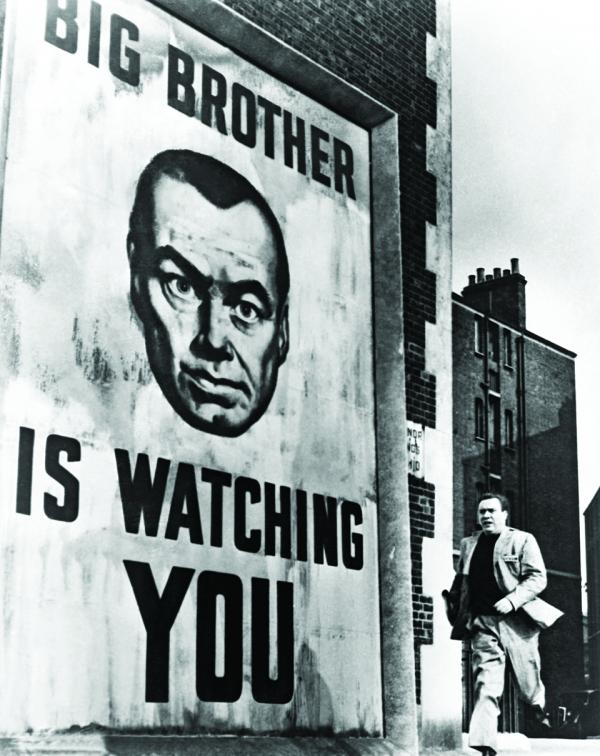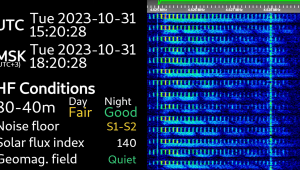You Will Love Channel 1984

“There was of course no way of knowing whether you were being watched at any given moment. . . . But at any rate, they could plug into your wire whenever they wanted to.”
Stop me when this sounds familiar. Workers leave their daily-grind jobs and plod home. They fall into chairs and watch the programs on their wall viewing screens. Simultaneously, the screens are looking back, watching the people at home. If you guessed that scene and the quote above were from George Orwell’s 1984, you are correct. If you guessed they are from your home A/V zones, you are also correct.
We accept, more or less, that companies are monitoring us while we surf the Net, click on ads, check Facebook, or do a Google search. But did you know that your flat-screen TV, computer, and phone have all become other windows into your life? Without any serious public discussion or outcry, we’ve all become data points. Any number of institutions can access our communications data while we unwittingly participate. For example, your iPhone keeps track of your daily whereabouts, and several times each day it sends tracking information back to Apple. You don’t even have to use the phone; the tracking is automatic. Now consider all the other electronic devices you use, and all the places and people you connect to. All of that personal (but far from private) communication is open to observation.
Companies can build a detailed profile of you and your activities, friends, travels, and opinions. Social networks are especially clever at this because they allow collection of your most intimate clicks. In fact, the social self-portrait you create for yourself on sites like Facebook is tailor-made for anyone interested in targeting you.
The worldwide flood of personal transmissions is widely used to turn a profit. Apple uses iPhone-tracking data in a system called iAd that lets advertisers target consumers according to their current location. Moreover, according to one researcher, “If I have hourly information about your location, then with about 93% accuracy I can predict where you are going to be an hour or a day later.”
Governments have also observed that one tweet may not say much, but a trillion tweets can be used to analyze human behavior. It’s believed that a “big data” system would be able to anticipate the outcome of real-time events by collecting data on everything from blog entries to traffic cams. Already, Twitter data has been used to predict Hollywood movie revenues. Next up: predicting political unrest and revolutions.
Your electronic life is not safe from surveillance, least of all your quality time in front of the flat-screen in your living room. When you tune in to GleeAmerican Idol during a commercial, mute the volume, then bail on both for a Burn Notice rerun, all of that data can be documented, aggregated, and sold.
Cable boxes from companies like TiVo, Time Warner, and Verizon can monitor what you’re watching every second and report it all back to the company. Likewise, Apple and Netflix keep an eye on which movies and TV shows you’re watching. Even the mobile DTV standard has recently been modified to include a back channel so that broadcasters can monitor you.
The watchers insist that all identifying data is removed, but it would be fairly easy to triangulate multiple data streams and figure out who you are. This could be accomplished by a company, a government (foreign or domestic), or a hacker. And in any case, even if you remain anonymous, your TV viewing habits are now essentially an involuntary revenue stream for someone, somewhere.
Sitting back and watching 200 TV channels used to be a private affair. Today, 200 channels are watching you. The story of 1984 wasn’t far-fetched. It was just 28 years too early. Happy viewing.
- Log in or register to post comments































































